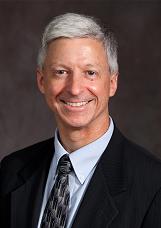 Paul Papierski, MD, is a board-certified orthopedic and hand surgeon. He practices with MidAmerica Orthopedics, which has several Illinois locations. Dr. Papierski is a retired 20-year veteran of the U.S. Air Force with experience in musculoskeletal injuries and disabilities.
Paul Papierski, MD, is a board-certified orthopedic and hand surgeon. He practices with MidAmerica Orthopedics, which has several Illinois locations. Dr. Papierski is a retired 20-year veteran of the U.S. Air Force with experience in musculoskeletal injuries and disabilities. Dr. Papierski has expertise in general orthopedics, sports injuries and arthroscopy. He focuses his practice on trauma and fractures of the elbow, hand, shoulder and wrist.
Here he discusses how engineering translated to a career in orthopedics, the role of technology in orthopedics and why patients will always need the skills of orthopedic surgeons.
Q: Why did you choose to become an orthopedic surgeon?
Dr. Paul Papierski: Before medical school, I studied engineering in college. I found orthopedic surgery — dealing with structure, muscular function, and mechanical activity — to be a natural extension of applied engineering.
Q: How has orthopedics changed since you began to practice?
PP: There has been an enormous increase in the level of available technology. There was significantly more art to the practice of orthopedic surgery at the time I started practice. We would contour and shape to the needs of patients and their unique situations. Today, there are so many specific technologies for unique problems in orthopedics, the challenge has become keeping abreast.
Q: What advice do you have for surgeons just entering the field of orthopedics?
PP: Always do your best. Although biological sciences will change the application of the treatment of patients' musculoskeletal system, there will always be injuries from sports, work and violence. There is now and always will be a steady stream of patients needing orthopedic skills.
Q: Are there any research developments you are currently excited about?
PP: The ability to analyze various treatments and keep track of these by computerized systems will, I believe, allow us to have a much better understanding of what orthopedic treatments are worthwhile and which ones are of lesser value. Other fields of the medical community already have reached a high level of understanding for treatment of specific diagnoses, such as chest pain and heart attacks. We need to bring orthopedic surgery to that level.
Q: What changes do you see on the horizon for orthopedic surgery?
PP: The field of orthopedics has relied on man-made materials to assist the body in healing and returning to functional activities. I believe the future will utilize many more biological technologies such as injections and processes that will allow for the regeneration of essential tissues in the musculoskeletal system. Examples of this include cartilage, muscle and possibly even nerve regeneration.
A series of articles featuring orthopedic surgeons on issues ranging from personal background to current research developments is published weekly. We invite all orthopedic surgeons and sports medicine specialists to participate.
If you are interested please email cpallardy@beckershealthcare.com.
More Articles on Sports Medicine:
Achieving Goals With Orthopedic Care: Q&A With Dr. Jeffrey Carlson of Orthopaedic & Spine Center
Arthroscopy, Minimally Invasive Surgery and Orthopedic Innovation: Q&A With New York Orthopedic Surgeon Dr. Howard Levy
The Art of Orthopedics & What Lies Ahead: Q&A With Dr. Barbara Bergin of Texas Orthopedics, Sports and Rehabilitation Associates


